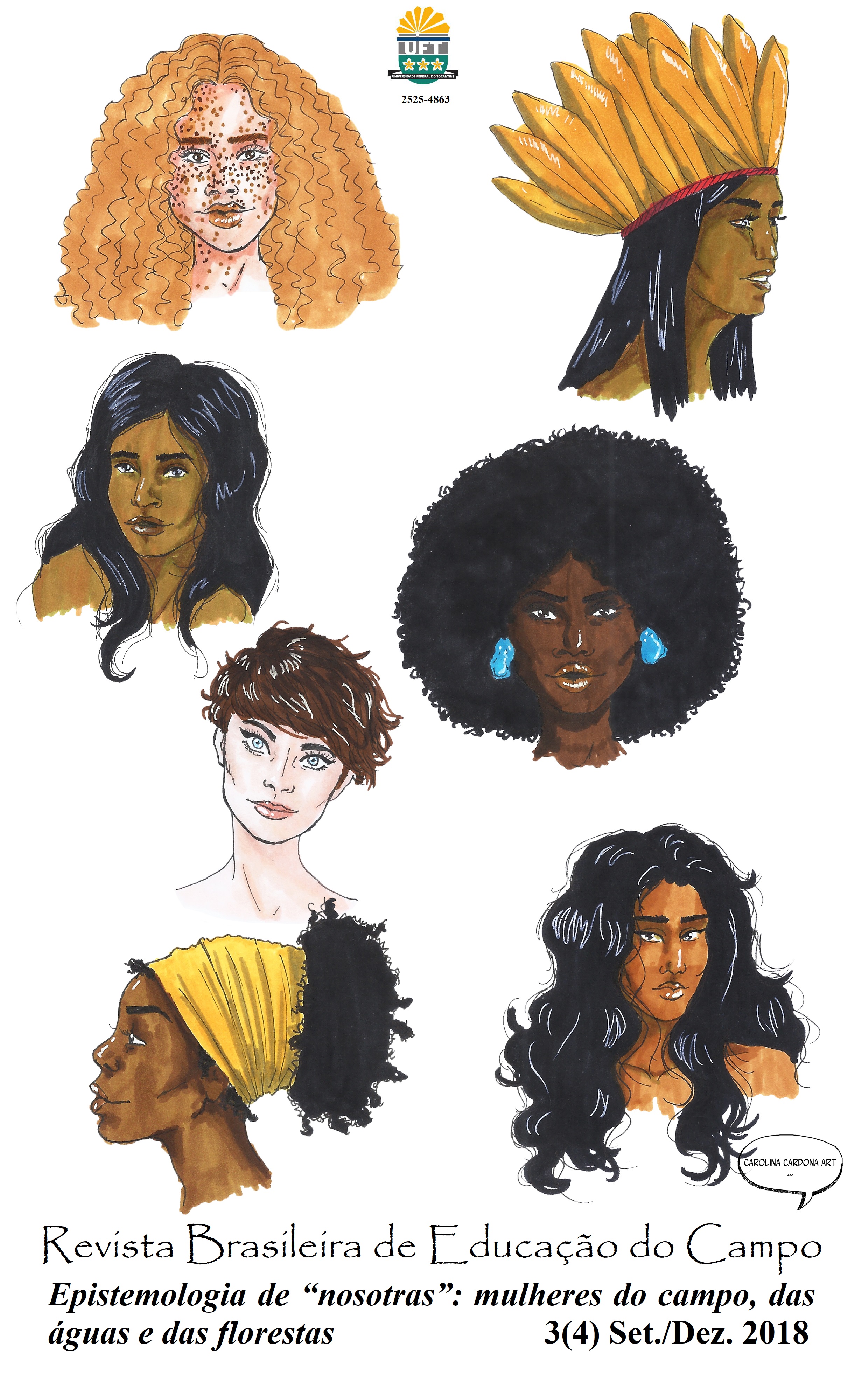Prospects and analysis of the educational training process in the project with citizenship in the countryside
DOI:
https://doi.org/10.20873/uft.2525-4863.2018v3n4p1372Abstract
ABSTRACT. This article has as a research problem the Rural Education and the training of the teachers who work in it ‒ through the analysis and discussion of the pedagogical work of educators participating in the National Program for Education in Agrarian Reform (PRONERA), developed in the scope of the Education of the Field and in the floor of the Education of Youths and Adults ‒, with the purpose of research recognizing the involvement of the educators of the Project Weaving Citizenship in the countryside, of the Flores/Formosa Polo. We undertake a methodology of qualitative approach with the accomplishment of semi structured interviews. From the limits and challenges pointed out by the educators, it was possible to identify: the difficulty in updating their teaching practice to the public of the EJA; the lack of rapprochement with an approach of liberating education; the shortage of didactic material and a certain difficulty with writing and reading by the educators. As for motivations and expectations regarding the project, the following points were pointed out by educators: the pleasure of teaching and being able to participate in moments of exchange of experiences; the desire for training; the conscience and duty to help others; the need for literacy within the settlement; the search for improvements in reality; the formation of more conscious citizens; the contribution to the transformation of society; and personal fulfillment with the certification of students at the end of the process.
Downloads
Veröffentlicht
Zitationsvorschlag
Ausgabe
Rubrik
Lizenz
Creative Commons Attribution License
Creative Commons Attribution License
Proposal for Copyright Notice Creative Commons
1. Policy Proposal to Open Access Journals
Authors who publish with this journal agree to the following terms:
A. Authors retain copyright and grant the journal right of first publication with the work simultaneously licensed under the Creative Commons Attribution License that allows sharing the work with recognition of its initial publication in this journal.
B. Authors are able to take on additional contracts separately, non-exclusive distribution of the version of the paper published in this journal (ex .: publish in institutional repository or as a book), with an acknowledgment of its initial publication in this journal.
C. Authors are permitted and encouraged to post their work online (eg .: in institutional repositories or on their website) at any point before or during the editorial process, as it can lead to productive exchanges, as well as increase the impact and the citation of published work (See the Effect of Open Access).














